Home Diagnostics
Home diagnostic products are medical devices that can be used in the comfort of your own home to monitor various aspects of your health. These products are designed to help individuals track their vital signs and detect potential health problems early, allowing them to take proactive steps to maintain their health and well-being. Some common examples of home diagnostic products include:
- Blood Pressure Monitors: These devices measure your blood pressure, which is a measure of the force of blood against the walls of your arteries. High blood pressure (hypertension) is a leading risk factor for heart disease and stroke.
- Heart Rate Monitors: These devices measure your heart rate, or the number of times your heart beats per minute. Irregular heartbeats (arrhythmias) can be a sign of heart disease and can be indicative of other underlying health issues.
- Pulse Oximeters: These devices measure your blood oxygen levels, which can be helpful in detecting respiratory problems such as asthma, COPD, and sleep apnea.
- Thermometers: These devices measure body temperature, which can be helpful in detecting fevers, which can be a sign of infection.
It is important to note that while home diagnostic products can be useful tools for monitoring and maintaining your health, they are not a replacement for medical care. If you have concerns about your health, it is always best to consult with a healthcare professional.
-


7 Series Wireless Wrist Blood Pressure Monitor
Omron
$94.99The Omron 7 Series Wireless Bluetooth® Wrist home blood pressure monitor will measure, store and let you review 90 readings for one user, and fits adult wrists from 5.3” to 8.5” in circumference. This Omron 7 Series Wireless Wrist...$94.99 -
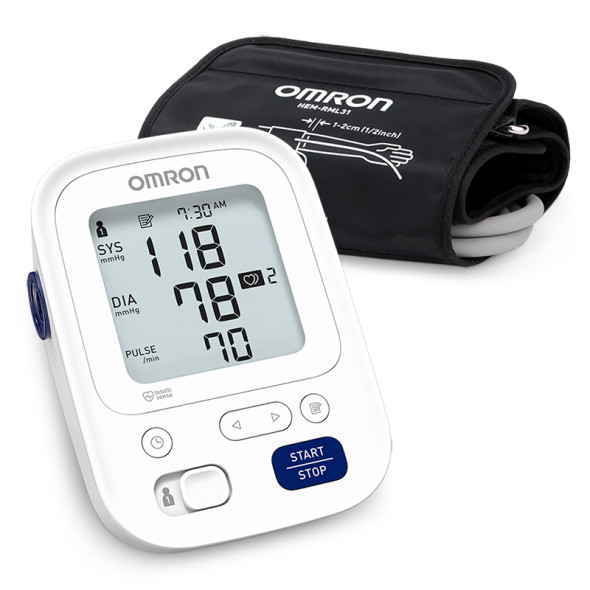

5 Series Upper Arm Blood Pressure Monitor
Omron
Now: $83.50Was: $92.88The Omron 5 Series Upper Arm home blood pressure monitor is designed for accuracy and stores 120 blood pressure readings for two users (60 per user), and includes a wide-range D-ring cuff (fits arms 9” to 17” in circumference). This...Now: $83.50Was: $92.88 -


10 Series Wireless Upper Arm Blood Pressure Monitor
Omron
Now: $135.50Was: $151.53The Omron 10 Series Wireless Bluetooth Upper Arm Home Blood Pressure monitor has a horizontally designed dual-display monitor and stores up to 200 readings for two users (100 per user), and includes a pre-formed Easy-Wrap Comfit Cuff (fits arms...Now: $135.50Was: $151.53 -

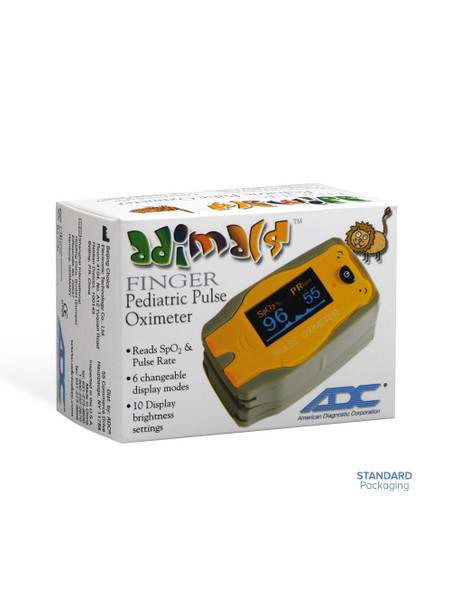
Adimals 2150 Fingertip Pulse Oximeter
American Diagnostic Corp.
$103.38The Adimals 2150 Fingertip Pulse Oximeter is a reliable and user-friendly device designed for monitoring your child's Oxygen saturation (SpO2) and pulse rate. With an accuracy of ±3% for SpO2 and ±2 BPM for HR, it provides accurate...$103.38 -


Advantage 2200 Fingertip Pulse Oximeter
American Diagnostic Corp.
$65.45The Advantage 2200 Fingertip Pulse Oximeter is a portable device that measures Oxygen saturation (SpO2) and pulse rate with ±2% SpO2 accuracy and ±5 BPM HR accuracy. It features 2 display modes and a bright LED display, fits fingers 0...$65.45 -


Diagnostix 703+ Palm Aneroid Sphyg with Adcuff+
American Diagnostic Corp.
$156.03 - $175.42The Diagnostix 703+ Palm Aneroid Sphyg with Adcuff+ is a precision-crafted and durable palm style aneroid sphygmomanometer that features a versatile and easy-to-use blood pressure cuff. The Adcuff+ model is made of a one-piece, reusable, TPU-coated...$156.03 - $175.42 -


Diagnostix 703 Palm Aneroid Sphyg
American Diagnostic Corp.
$154.99The Diagnostix 703 Palm Aneroid Sphyg 703 is a versatile and durable palm-style aneroid sphygmomanometer that boasts precision crafted performance and rugged durability. The traditional Adcuff model features a two-piece cuff and bladder made from...$154.99 -
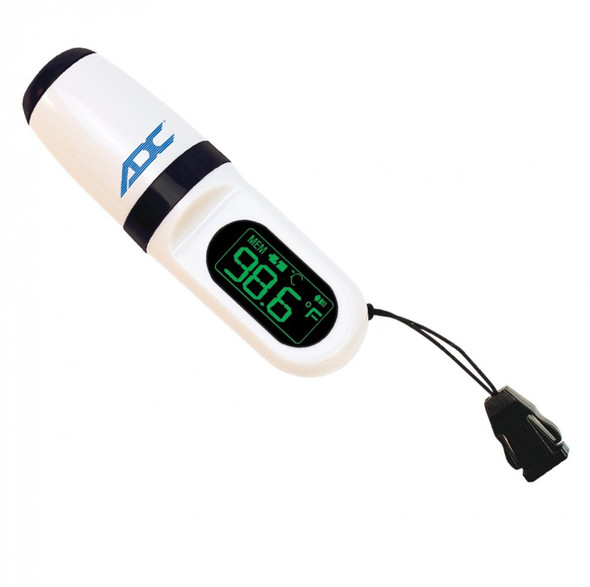
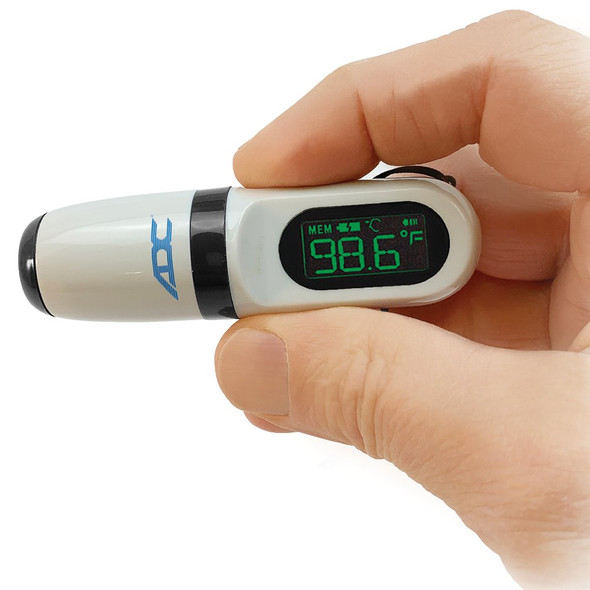
Adtemp Mini 432 Non-Contact Thermometer
American Diagnostic Corp.
$79.99Compact, lightweight, and fast non-contact thermometer with accurate readings in 1 second. Color-coded LCD display, audible beep, and 9-reading memory. Rechargeable battery with 1,000 measurements per charge. ASTM E1965-98 standards for accuracy and...$79.99 -


Advantage Connect 6024N Automatic Digital BP Monitor with Bluetooth
American Diagnostic Corp.
$97.00The Advantage Connect 6024N is a digital blood pressure monitor with Bluetooth and advanced features for accurate readings. The Advantage Connect 6024N is an upper-arm digital home blood pressure monitor that combines best-in-class features with...$97.00 -
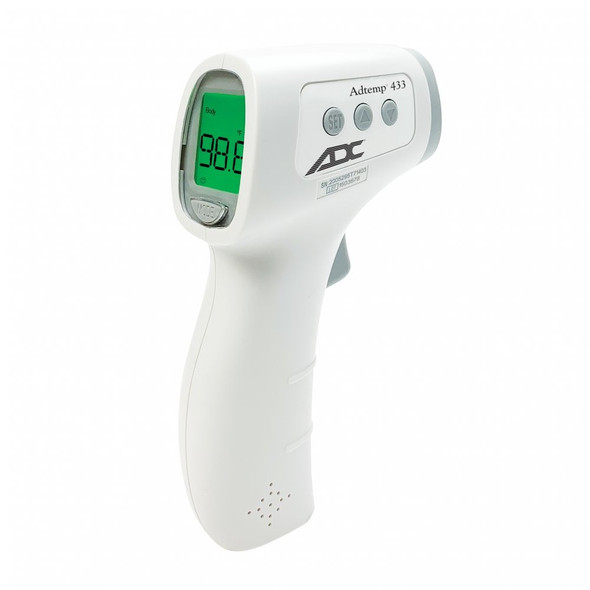

Adtemp 433 Non-Contact Thermometer
American Diagnostic Corp.
$76.50The Adtemp 433 Non-Contact Thermometer is a fast and accurate thermometer designed for rapid screening in a variety of settings. With its trigger-style design and ability to take accurate readings in less than two seconds, it is perfect for use in...$76.50 -


Diagnostix 2100 Fingertip Pulse Oximeter
American Diagnostic Corp.
$89.95The Diagnostix 2100 Fingertip Pulse Oximeter is a compact and feature-rich device that provides spot readings of SpO2 (Oxygen saturation) and heart rate for busy healthcare professionals. It features a dual color OLED display with 6 changeable display...$89.95 -
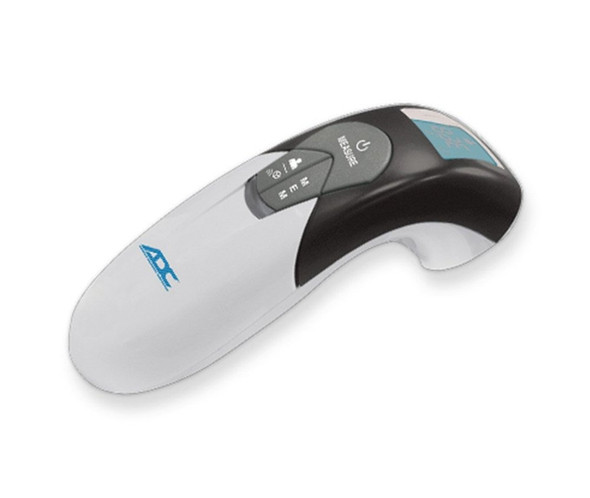

Adtemp 429 Non-Contact Thermometer
American Diagnostic Corp.
$84.97Quick and accurate non-contact forehead thermometer. No skin contact required, minimizes risk of cross contamination. Large backlit LCD display, dual mode for body and objects. 30 reading memory, °F/°C switchable display. The Adtemp 429...$84.97
